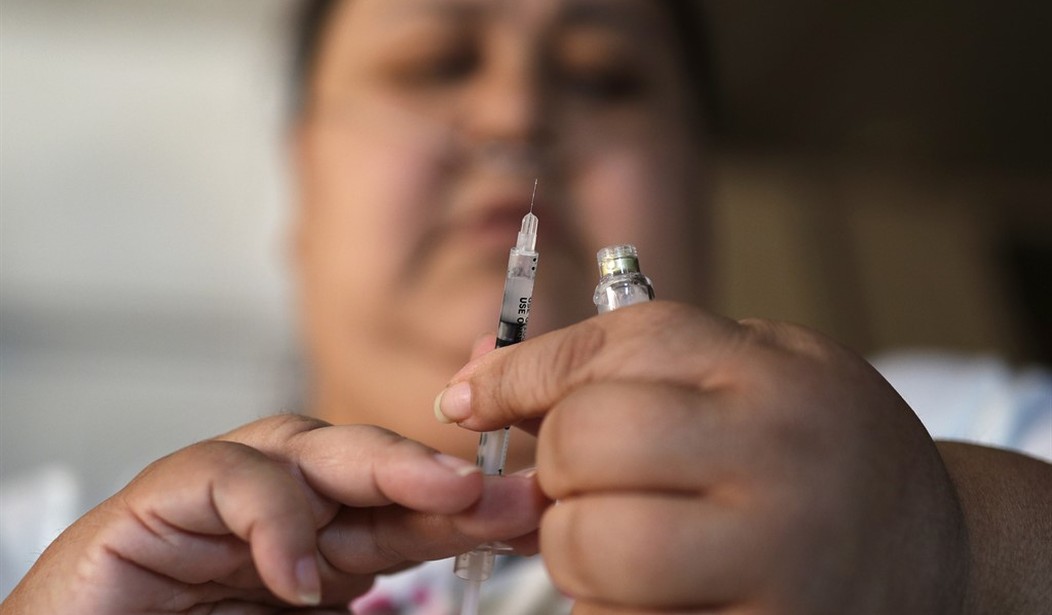Food or life-saving medication? With prescription drug prices skyrocketing for over a decade now, more Americans are having to decide between paying for food or paying for their life-saving medication.
It was the case for Marjorie Prunty, a senior from Missouri, whose dinner comes from dusty cans in the back of her garage. It’s all she can afford to eat in order to pay for her insulin.
And Prunty isn’t alone. She’s part of the nearly 25 percent of Americans who struggle to pay for their prescription drugs. The rising cost of prescription drugs, particularly insulin, has many Americans rationing their medication—which can be deadly. Last Christmas, Meaghan Carter died because she took low doses of her insulin to prolong the supply.
Over 30 million diabetics in America have seen the price of insulin double in 2012, with some paying 54 percent more for it than in 2014. Three companies own 99 percent of the insulin market because there are no generics. It’s one of the reasons why diabetics have seen insulin prices skyrocket: without competition, there is no incentive for insulin manufacturers to lower their cost.
Arizona is one of the toughest states hit. Residents are feeling the heat of rising prescription costs: The Arizona Daily Star reported that “about 11 percent of Tucson-area residents say they have rationed their medications in the past year because of the high cost of prescription drugs,” and nearly 33 percent of Arizonans aren’t taking or refilling their prescriptions. Moreover, 80 percent of Arizonians are concerned about prescription drug prices.
Recommended
In other words, this is a major problem.
Fortunately, Sen. Chuck Grassley (R-IA) and Sen. Ron Wyden (R-OR) have a solution. They introduced the Prescription Drug Pricing Reduction Act (PDPRA) to curb the rising costs of prescription drugs. The bill penalizes pharmaceuticals that increase their prices faster than the rate of inflation, incentivizing insulin manufacturers to not price gouge, and caps out-of-pocket costs for seniors on Medicare Part D plans. Better yet, the Congressional Budget Office found that the bill would save Medicare more than $85 billion over the next decade and, at the same time, would save its beneficiaries $27 billion in out-of-pocket expenses.
Both Republican and Democratic Congress members facing reelection should consider supporting the PDPRA. In 2018, the Republican Party lost 41 seats due in part to not passing the healthcare reforms that voters wanted. It would be prudent for candidates to not make the same mistake again.
Healthcare was a major issue in the 2018 midterms: 41 percent of participants in a Gallup exit poll said it was the issue that most influenced their vote. According to another poll, it is currently the top concern for voters, beating out the economy and immigration. This is an opportunity for elected officials to demonstrate to voters that they can lead on this issue by offering meaningful solutions.
As the election nears, both parties should anticipate an even higher voter turnout in 2020 than the record-breaking turnout in the 2018 midterms. Candidates, therefore, must gain support from a broad range of voters in order to win. By supporting legislation on an issue that affects nearly every American, they can win over more voters and show them that they can solve one of the most pressing issues of our time.

























Join the conversation as a VIP Member